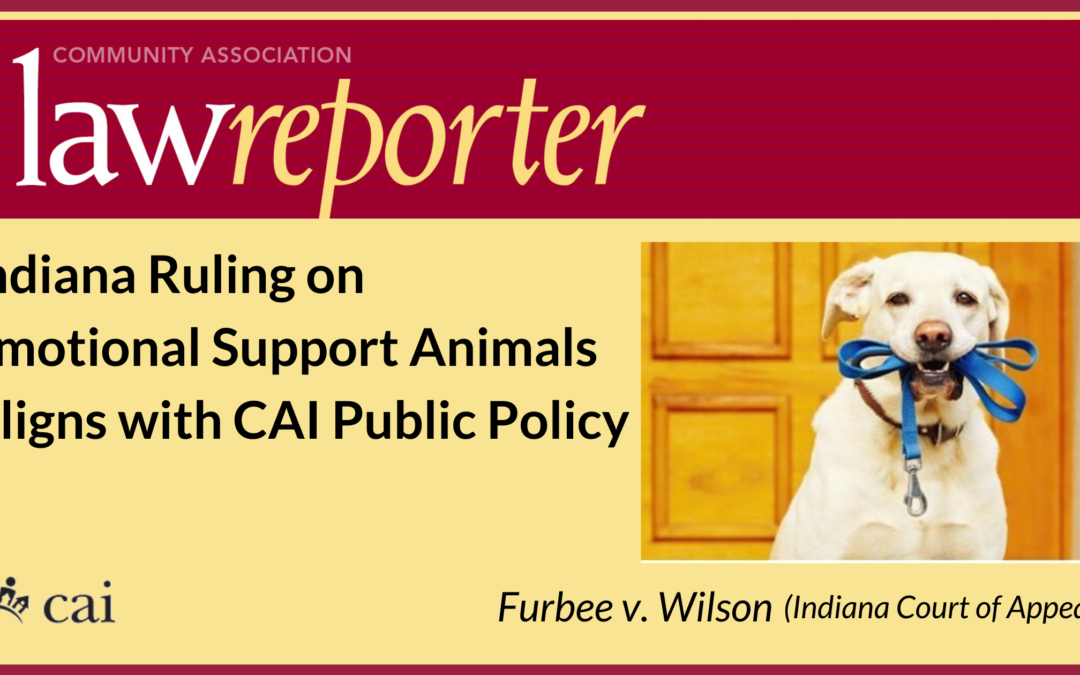The Indiana Court of Appeals in March held that a party requesting a disability accommodation under the Indiana Fair Housing Act and the federal Fair Housing Act to keep an emotional support animal must, at a minimum, inform the housing provider of the nature of the disability and the disability-related need for an emotional support animal.
In this case (Furbee v. Wilson), a renter requested a reasonable accommodation for an emotional support animal from their rental company. The letter the renter provided to the rental company from a licensed therapist only stated that the individual had a disability, without identifying the disability, and needed an emotional support animal to help alleviate her symptoms. The rental company requested additional information to make an informed decision on the accommodation, which was never provided, leading the company to take no further action on the request.
The appeals court noted that a housing provider’s decision as to whether to grant or deny a requested disability accommodation necessarily includes the ability to conduct a meaningful review to determine whether the act requires the requested accommodation. Without this additional information, the rental company was unable to meaningfully consider the renter’s request. This ruling on emotional support animals directly aligns with CAI’s public policy on pets and assistance animals.
CAI recognizes and supports the rights of community associations to regulate and adopt their own rules pertaining to pets and assistance animals living in their communities. CAI also recognizes the rights of individuals with disabilities to receive the assistance they need and supports state and federal law guaranteeing such rights.
CAI supports legislation that specifically allows community associations to request documentation to verify the need for an accommodation for an assistance animal.
In January, the U.S. Department of Housing and Urban Development, which oversees the Fair Housing Act, also issued additional clarification on how a housing provider should assess a person’s request to have an animal as a reasonable accommodation. CAI developed resources for community association board members, managers, and residents to determine when to consider a reasonable accommodation.
The Indiana ruling on emotional support animals was highlighted in the May issue of CAI’s Community Association Law Reporter, a monthly, members-only newsletter that provides a brief review of key court decisions impacting community associations throughout the U.S. Cases deal with developer liability, powers of the association, use restrictions, covenant enforcement, assessment collection, and much more.
In addition, CAI’s College of Community Association Lawyers prepares a case law update annually. The database includes summaries of these cases, along with their references, case numbers, dates, and other data.



